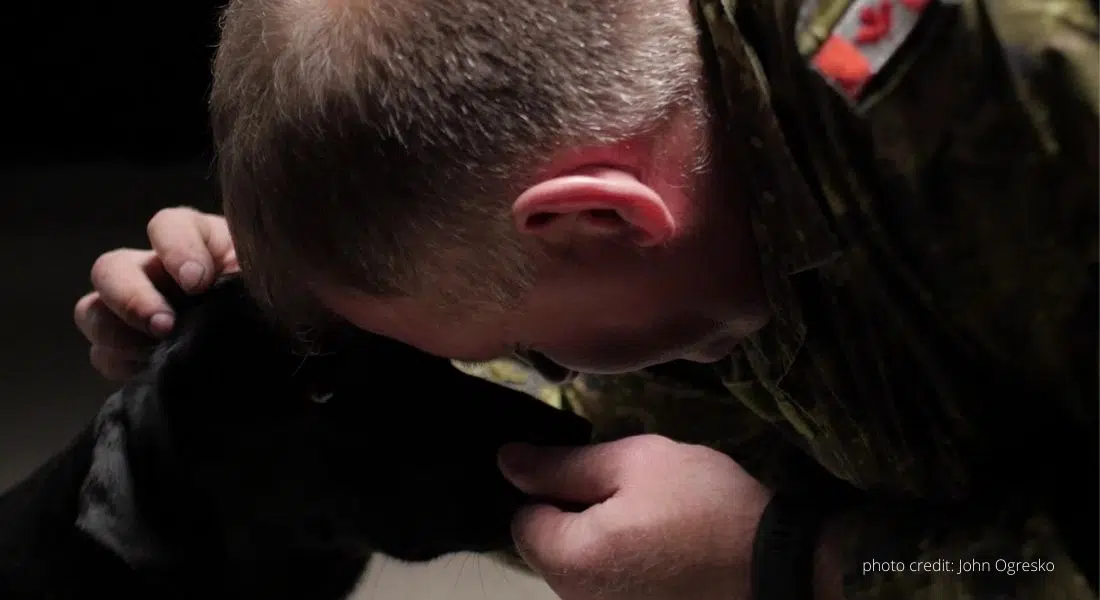A recent study at the University of Saskatchewan has concluded the service dogs can reduce substance use and improve the symptoms of anxiety and PTSD in military veterans, and they can help to bolster veterans when they are feeling suicidal.
Researcher Alexandria Pavelich says veterans returning to civilian life are disproportionately affected anxiety, depression, and PTSD from active combat and losing friends while in service, and the suicide rate is about twice that of the general population.
She gives the example of one veteran she spoke with who told her he had planned to leave the country to kill himself, but then thought about his service dog and what would happen to her, and he changed his mind.
Pavelich says along with the mental health challenges, going from a close-knit military group who rely on each other every day to civilian life where you are on your own, especially if you have no family, can be difficult, and service dogs can help with that, too. She explains that having a strong social system is important.
Pavelich hopes to continue her work with veterans and service dogs, raising awareness with the general public and the government to show the value that service dogs have, allowing more access to public spaces if the dogs are certified.
Click here for more information on veteran service dog research.

























